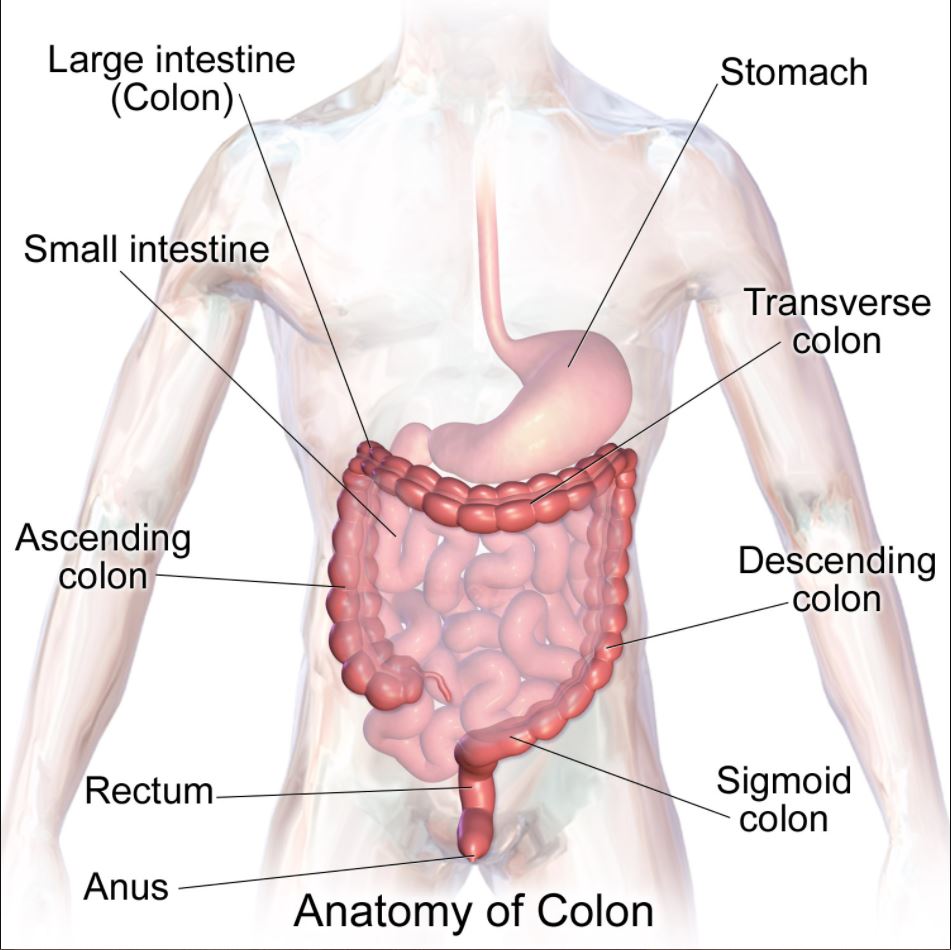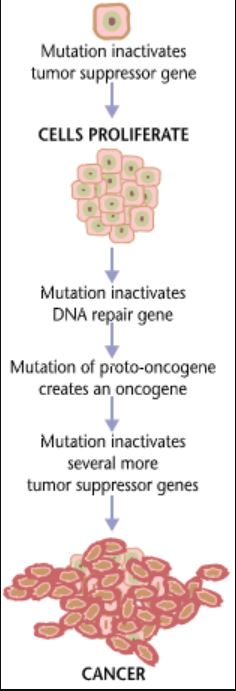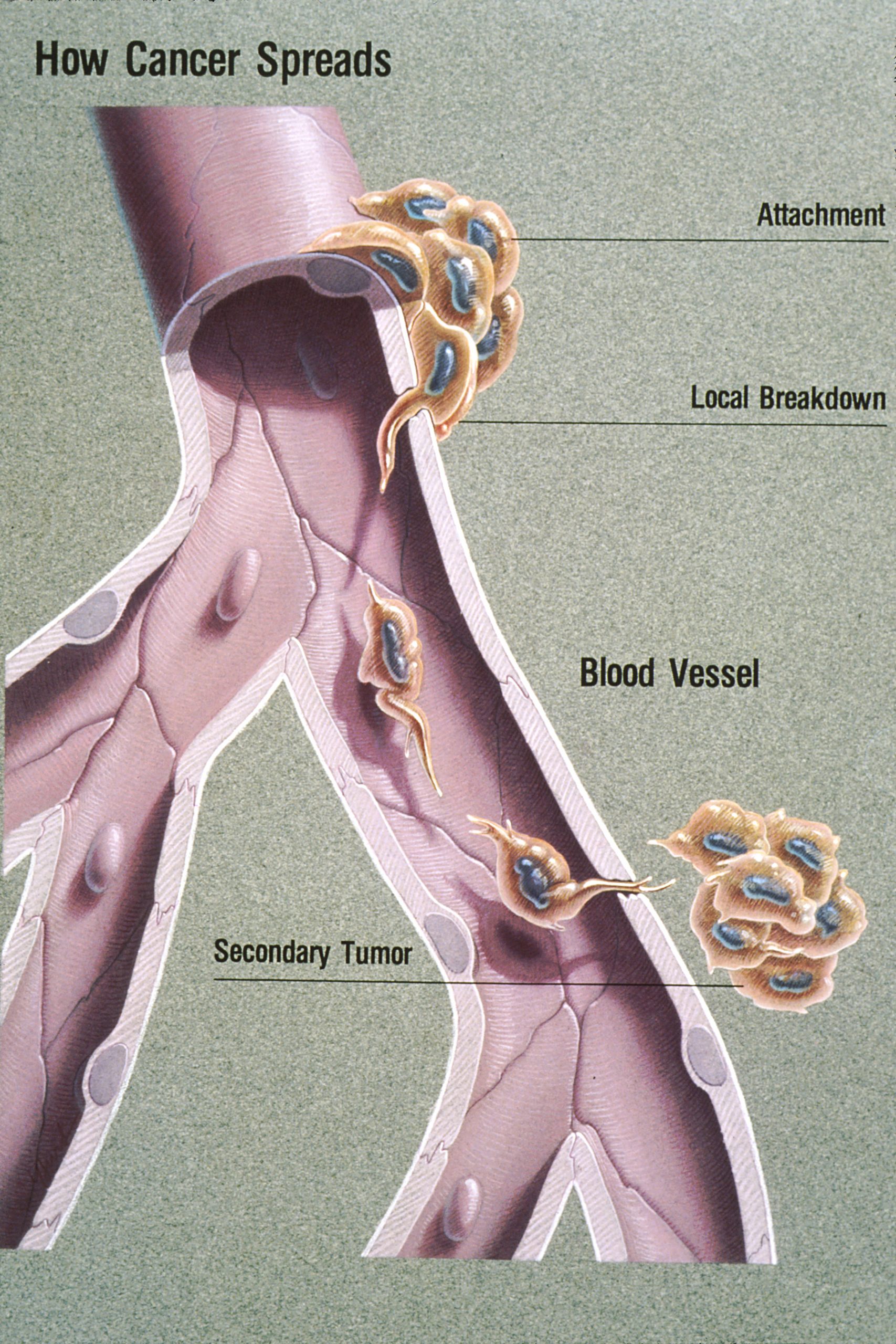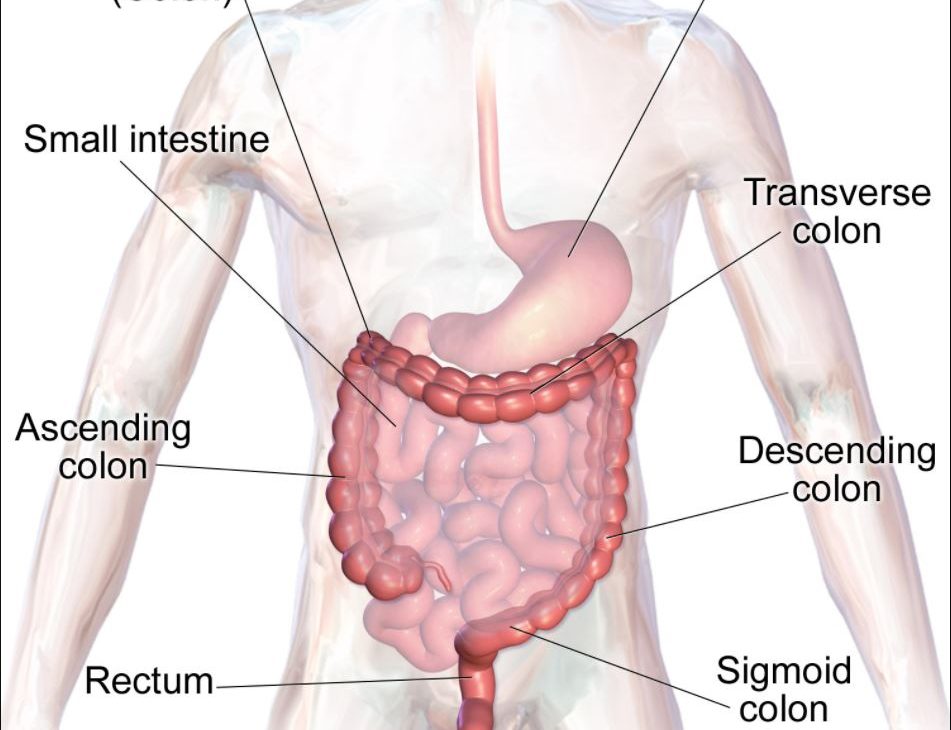To be able to answer the question, ‘What is bowel cancer?’, it’s vital to first know the answers to:
- What is cancer?, and;
- What is the bowel?
What is Cancer?
A good definition of cancer is this:
A cancer is an abnormal growth of cells that have the ability to invade or spread to other parts of the body.
More simply put, the cells of our body usually divide to make new cells in a controlled way. This goes on all the time as our bodies grow, age and heal. When something goes wrong with this process, the cell becomes abnormal. This cell then keeps dividing and producing more abnormal cells. This growth of cells is a tumour.
Not all tumours are cancerous. Many are not and these growths are known as benign tumours. A benign tumour can’t spread to anywhere else in your body.
A malignant tumour, on the other hand, is cancerous, and can spread into surrounding tissue and other parts of your body.
If cancer cells from a malignant tumour do break away from the main body, of what is known as the primary cancer, they can travel through the blood or lymphatic system. If these cancer cells settle in another organ, and start growing there, this becomes known as a secondary cancer.
This secondary cancer is known as a metastasis. If there is more than one metastasis, they are collectively known as metastases, or mets.
Importantly, it doesn’t matter what organ these secondary cancers, or mets, are located; they are still the same type as the primary. In my example, I have mets in my liver and lungs. These mets are still the same as my primary; they are bowel cancers. This can take some getting your head around, so:
- The cancer in my liver is bowel cancer.
- The cancer in my lung is bowel cancer.
What is the Bowel
The ‘Bowel’ in question, here, is the large bowel. More commonly known as the large intestine. The large intestine is, however, more than just the colon, as it includes the rectum. There is some argument that the anus should be included as part of the large intestine but, for reasons I won’t go into, I disagree. And won’t be discussing Anal Cancer.

The large intestine is about 150cm long and about 6cm wide. It has 5 distinct sections:
- Ascending colon (including cecum and appendix)
- Transverse colon
- Descending colon
- Sigmoid colon
- Rectum
The 4 colon sections are part of the digestive system and are concerned with the extraction of water and salts before the solid waste leaves the body. The rectum holds the solid waste that is waiting to leave the body.
The structure of the large intestine is mainly muscular. There are 2 layers of muscles, one running along the length of the structure and the other wrapped around the circumference. Within this is a submucosa layer and then the mucus membrane (mucosa), which forms the internal wall.
The mucus membrane is also where the vast majority of bowel cancers start. Which leads to…
What is Bowel Cancer?
Bowel cancer, then, is any cancer that affects the colon and/or rectum. These cancers usually tend to be very slow growing, often over a period of up to a decade. Once they reach a certain stage, they start to spread to other parts of the body. As such, regular monitoring, by colonoscopy, is a highly effective preventative measure.
The reason for the effectiveness of the measure is that most bowel cancers start as polyps. A polyp is a small spot on, or protrusion from, the glandular cells of the mucus membrane. Virtually all polyps are benign, which means that, during a colonoscopy, they can be removed before they become a problem.
The likelihood of developing polyps increases with age, which is why the frequency of colonoscopies usually does likewise.
But that still doesn’t answer the question, ‘What is bowel cancer’, so much as, ‘Where is bowel cancer’.
Unfortunately, to answer, ‘What is bowel cancer’, in a meaningful way, is going to get a little complicated but, bear with me.
So, the mucus membrane cells form a benign tumour, called a polyp, which, over time, will become cancerous if left untreated. But why do the cells become abnormal? What triggers them?
Genetics plays a part. But, apparently a fairly small part. At present, it is thought that inherited genetic disorders, such as familial adenomatous polyposis and hereditary non-polyposis colon cancer, are responsible for only about 5% of bowel cancer cases.
Regardless of the cause of the mutation in the cell, it’s most often a mutation in the Wnt signaling pathway that starts the tumour. This mutation is most likely to start in the intestinal crypt stem cell, one of the folds in the lining of the large intestine. And the most commonly mutated gene in all colorectal cancer is the APC gene, which produces the APC protein.
As I understand it, the gene helps dictate the cell renewal and because of the error in the signalling pathway, this results in an instruction to renew the cell both far too often and far too quickly. Which is where the tumour comes from. And, given time, where the cancer comes from. And, if given too much time, the source of secondary cancers, elsewhere in the body.

To be fair, there is a lot more to it than I’ve explained above, but I don’t see any benefit to exploring deeper into the genetics because, from the pointy end of the stick, it really doesn’t make any difference.
Types of Bowel Cancer
As a whole, on the world stage, bowel cancer is the third most common of cancer, accounting for about 1 in 10 of all cases. It is, however, more common in developed countries, where about two thirds of all cases are found, despite accounting for less than 20% of the overall population. it is also more common in men than women.
Whoever and wherever you are, though, Adenocarcinoma is the most common type of bowel cancer. This is the cancer, as described above, that starts in the mucus producing cells of the mucus membrane. There are 2 rare types of adenocarcinoma, mucinous tumours and signet ring tumours, but these are treated the same way as a typical adenocarcinoma.
There are a number of rarer types of bowel cancer, all of which are treated differently to adenocarcinomas. These are: squamous cell tumours, which grow in the non mucus producing cells of the mucosa; carcinoid tumours, which grow in the hormone producing cells of the bowel wall; Sarcomas, which originate in the muscle layers of the bowel wall, and; lymphomas, which are cancers of the lymphatic system associated with the bowel.
And, yet, the question as to what is bowel cancer, has not been fully answered. This is because, while bowel cancers all originate in the bowel, most deaths are associated with metastatic disease. Which is to say, metastases.
Bowel Cancer Metastases
When bowel cancer spreads from the primary cancer in the bowel, this development can be referred to in a number of ways, including: secondary bowel cancer, advanced bowel cancer, and metastatic bowel cancer. It all means the same thing. It all means that there is now cancer in other parts of your body, and your life just became a whole lot more complicated.

The most common organ in which to develop a bowel cancer metastasis, is the liver. The lungs are the next most common along with the lymph nodes. Basically, anything starting with the letter ‘L’ needs to be watched out for…
The rarer places that can receive a bowel cancer metastasis are the bones, the surrounding peritoneum and, very rarely, the brain.
Providing the metastases keep themselves to 1 organ, your treatment will likely be curative. Which is to say that bowel cancer with a liver met or a lung met will be met with surgery and chemotherapy in an effort to cure you.
If the mets are in more than one organ, say liver and lungs, then your treatment stops being curative and becomes palliative. This is a development that can shake you to your core, when you hear it, but might not mean what you think.
Palliative care is focused on maintaining the quality of life. This means that if surgery and/or chemotherapy will maintain, or improve, a patient’s quality of life, then that’s what they get.
Palliative care does not just mean keeping a patient comfortable while they wait for the end. Palliative care means giving the patient the best quality of life for the longest possible period. And palliative care can last for many years.
The reason I know this? I’ve got mets in my liver and my left lung. Again! I had something similar before my last lot of chemo a couple of years ago. And I’m having another liver resection tomorrow…
Because I’m relatively fit and healthy, this surgery will maintain my quality of life. So, surgery it is. This is yet another reason, if you’ve received a cancer diagnosis, to improve your diet and improve your fitness.

What is bowel cancer? It’s most likely to be a mutated cell in the mucus membrane of of the bowel that grew abnormally to form a benign polyp, grew further into a cancer and then spread elsewhere in your body.
What is bowel cancer? It’s largely avoidable with a sensible approach to diet and exercise that achieves a healthy BMI. If everyone was a healthy BMI, exercised regularly and avoided processed meats, bowel cancer rates would be halved.
What is bowel cancer? It is entirely treatable if caught early enough through a colonoscopy. If everyone had an annual colonoscopy, bowel cancer would be virtually eradicated.
What is bowel cancer? A pain in the arse, for those of us that have it. But, hopefully, with the right health education, and preventative treatment measures, soon to become a thing of the past.
